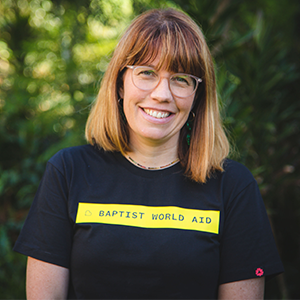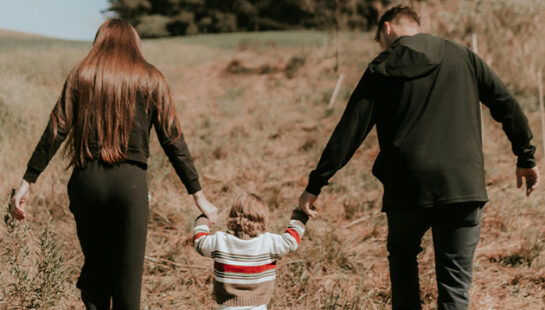When she was 13 years old, Soneka was married. Only a few years later, this young mother from northern Bangladesh became a widow—and during this time, she found her strength. After her husband’s death, she tended the family’s small plot of land, growing small harvests and travelling long distances to sell them. But it was never enough to meet the family’s needs.
We hear many stories that begin like Soneka’s from our local Christian Partners across 24 countries, including Bangladesh, Nepal, Cambodia, and Kenya. Poverty can keep many communities trapped in a cycle of hard work for little reward over generations. For these hardworking, diligent, and determined men and women, the obstacles to a flourishing life cannot be overcome by grit alone.
Soneka’s breakthrough began when our local Christian Partner launched a pilot program in her village to help farmers grow produce, and access local markets for consistent and fair opportunities to sell their crops. Soneka joined the program and learnt how to make her own organic fertiliser, plant a diversified harvest, and invest in higher quality seeds.
‘This project helped me increase my yields, improve the quality of my crops, and be better informed,’ Soneka said, ‘I’m now more confident and ultimately better equipped to negotiate for better prices.’

What is Community Development?
Projects like this one are broadly called Community Development: an approach that uses what a community already has in their ‘hands’—their skills, strengths, and resources—to address their needs. Community members identify and tackle the challenges holding back their families, businesses, and communities.
In real terms, this means supporting education, agriculture and livelihood training, health and sanitation, rights training that mitigates the risk of exploitation, and disaster awareness and preparedness. And it always involves working with local leaders to ensure that the community, not the assisting organisation, is leading the way.
It’s a far cry from the way countries like Australia once offered humanitarian aid. While well intentioned, it was often harmful in the long term when foreign agencies entered communities as ‘experts,’ undertaking to solve problems as they saw them. The result was disempowered people, and projects that often floundered when the organisation pulled out. Local expertise and intelligence were often ignored, so solutions were less effective and sustainable because they weren’t informed by local insight.
Charity or Community Development?
Baptist World Aid is committed to working with not for communities—co-creating solutions that address not just immediate needs, but also the underlying causes of poverty. Community Development ensures long-term change because it’s driven by the community themselves. Our Christian Partners identify, support, and equip local leaders and volunteers to drive projects, so development continues long after our Partners have moved on to assist other communities.
‘We believe local people understand local needs better, and they’re best placed to identify solutions that are often simpler and less expensive than we could imagine’, says Fiona Smith, Director of International Programs at Baptist World Aid.
We believe local people understand local needs better, and they’re best placed to identify solutions that are often simpler and less expensive than we could imagine.
The Impact of Locally Led Community Development
Since joining the Community Development project in her community, Soneka has doubled the size of her farming land, and increased her net return by 75 per cent. Over the past two years, she’s used her increasing income to build a new house for her family of seven, construct a toilet, and buy two cows.
Soneka did this. It was not done for her. But she needed a partner.
Community development is about partnering with communities—our Christian Partners bring their know-how and expertise, and people like Soneka bring their farming experience, grit and passion for their community. It’s a partnership of equals, where each party shares equally in the image of God.
‘God could elect to transform the world here on earth without us, yet he chooses to invite us to partner with him.’ Fiona Smith said, ‘And I believe God does this because he values being in relationship. When we bring our different gifts, culture and experiences together like organs in the body, we’re strengthened—and so is the work we do.’
Soneka now looks to the future. Her dream is ‘to educate my three grandchildren.’ And she also wants to ‘help other widows because the world is cruel to us.’
God could elect to transform the world here on earth without us, yet he chooses to invite us to partner with him.
At its core, Community Development is about empowering people to muster their strengths and resources to create long-term change. This approach is a vivid demonstration of the Kingdom of God at work, as it values the dignity and equal worth of every person, and seeks to restore relationships and build thriving communities.



 Heather Keith,
Heather Keith,
